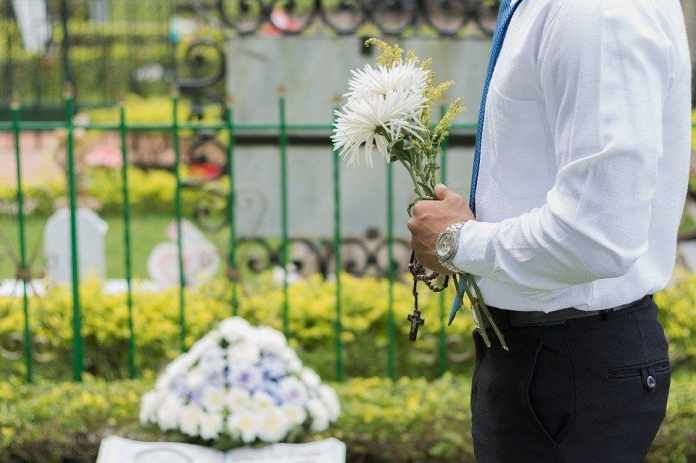Like the old concept of codependency, there are so many things that co-exist. We wouldn’t have known happiness if we hadn’t had a taste of how sadness feels. Be it a believer or non-believer, no one can deny the fact that we are not going to live forever. At some stage in our life, our body is going to give up on its functioning processes. We all have to die, and our loved ones will depart us with the mandatory rituals that have been in practice since ages. Every culture and religion have their specified ways of celebrating happiness and mourning a death. You will find different rites of burial or weddings all around the world.
The year 2020 initiated like every other year, but it took a turn right after a month and left the whole world in a state of shock. It was no less than a nightmare to know about a deadly virus that has kept everyone confined in their homes. The definition of “normal” twisted upside down, and our lives took a 360-degree turn. People were trying to cope-up and adjusting to the change of routine that the pandemic has imposed on them. It was not an issue until they had to face a challenge in funeral and burial rituals. We all are well aware of the death rate the world has faced in the past few months due to the coronavirus.
People were worried more about burying their loved ones, as the moral support of relatives and loved ones was only available through the phone. They couldn’t gather in large groups due to social distancing. Many people had to drop their burial rites and relied on the services of funeral homes to bid farewell to their loved ones. The burial rituals changed all around the globe, and here is how it brought changes in different countries and in general.
- IT BECAME DIGITAL
With the guidelines issued concerning the numbers of attendees and funeral rites, many relatives could not even visit the houses of a deceased. Human nature seeks emotional support to overcome grief. People used to visit their relatives to show support and give condolences. With coronavirus prevalent, many relatives refrained from visiting the house of the deceased and started to attend funerals on video calls or zoom. The element of emotional support vanished and left a vacuum as social distancing was an obligation, and the process of dealing with grief also changed.
- AFFECTING THE TRADITIONS
The world has many religions, and they all follow their rites and rituals as per their beliefs. Death rituals vary everywhere. Muslims all around the world was now facing issues in giving the proper burial to their loved ones. Muslims were grieving at a distance, and very few also attended the burial prayers as they had to pray at a distance. The Jews were no longer mourning for seven days as it was unsafe for people to visit back and forth and exposing themselves to the possibility of a contracting virus. The Christians had to minimalize their burial rites and the number of attendees for everyone’s safety.
- CHANGE IN DEALING WITH DEAD BODIES
Before the pandemic, the hospitals would release the dead bodies, and the loved ones would take them for the final rites. They were able to see the dead body, touch, or bathe them as per their rituals, and then set it off to bid farewell. With the virus outbreak, the procedures for dealing with dead bodies also changed. They are now wrapped in plastic bags and sealed in coffins and buried as soon as possible. Touching and kissing the corpse is no more allowed as per the guidelines of the World Health Organization.
- GRIEVING ALONE
The coronavirus outbreak left many people in shock and trauma of dealing with loss. If a person is aged or has been suffering from chronic illnesses, we are mentally ready that the person might not live long. In recent times, many young and unexpected deaths happened due to coronavirus, and the irony was that no one could be physically present to support the grieving. People were grieving alone, while deep inside, wishing for someone to be there to support them or assure them that they are not alone.
- ALTERED FUNERAL SERVICES
The person affected by COVID-19 has to deal with the trauma of being away and fighting the disease alone in the hospital. They suffer emotional distress along with physical ailments. Upon the death of a COVID patient, the funeral services had to reform their policies, and morgues had to change their protocols for such dead bodies. These services are keeping the interaction minimal and allowing only one or two individuals of the family to handle and taking off the dead body.
CONCLUSION
The current pandemic has exposed us to unimaginable realities that might have existed only in our imagination of a parallel universe. While a lot of things had to shift to the digital realm to keep the businesses and finances going, death also became digital. Social distancing changed the definition of grief and moral support, and people have no way out. From attending the funerals in the minimum number of attendees to not being able to be there, this pandemic has changed the course of human life on a broader spectrum. The burial rituals are not the same in many countries, and people who have lost their loved ones to the virus are still finding ways to cope up with the emotional void in their lives.








